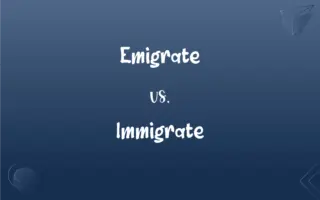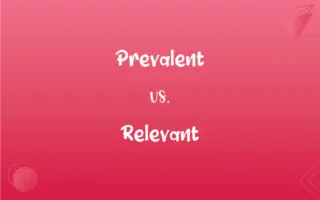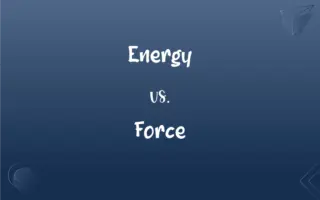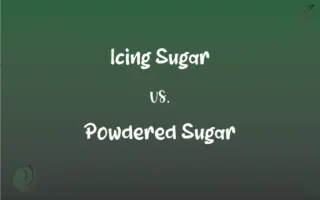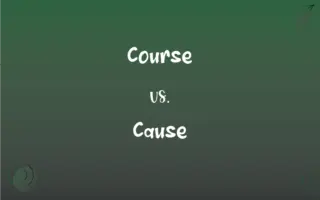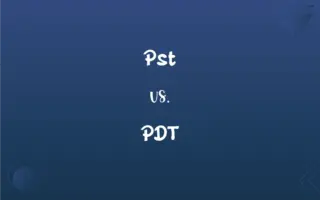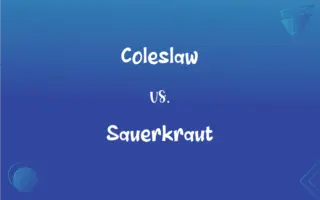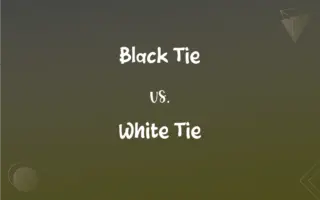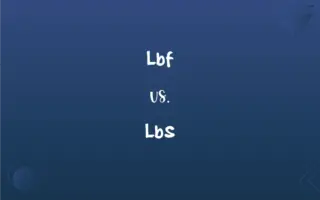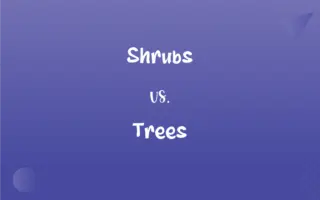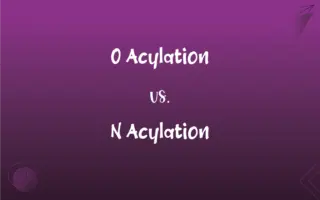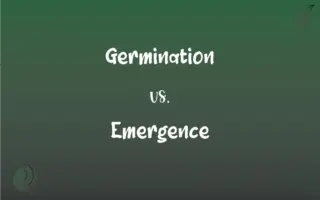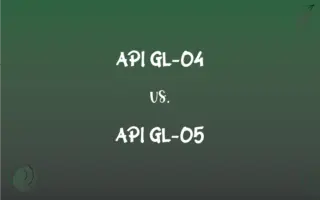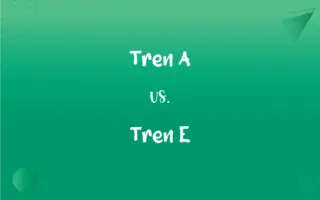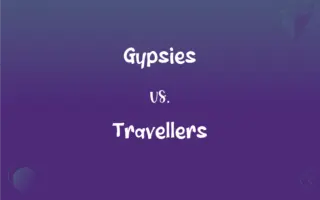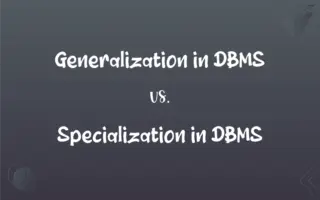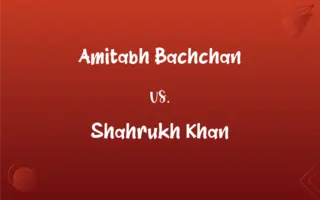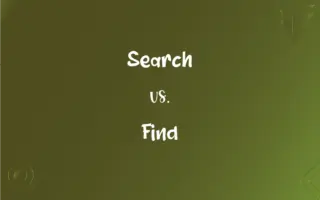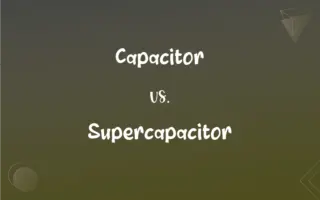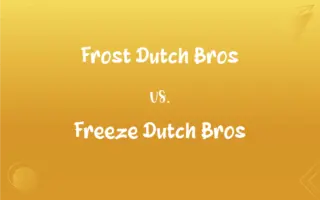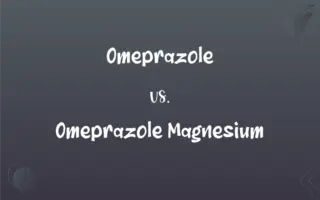To vs. Too: What's the Difference?
Edited by Janet White || By Harlon Moss || Updated on October 24, 2023
"To" is a preposition or part of an infinitive verb; "too" means "also" or "in excess."
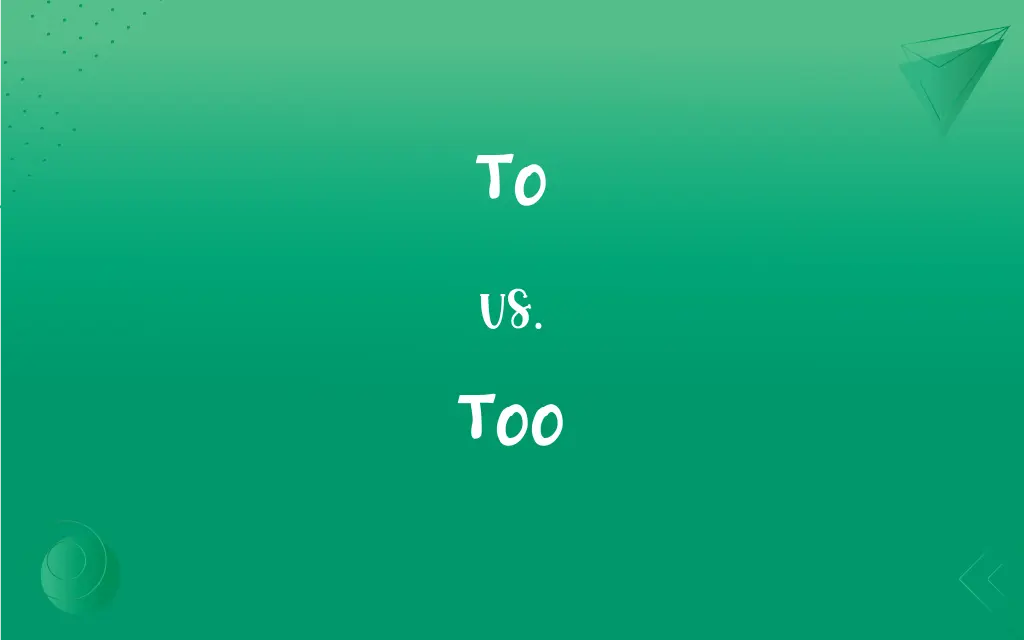
Key Differences
"To" is one of the most versatile words in the English language, serving primarily as a preposition, but it can also form part of an infinitive verb. On the other hand, "too" is an adverb, and its usage is more specialized.
When we use "to," we might be indicating direction, like going "to" the store, or purpose, as in a key "to" a lock. In contrast, "too" can imply an additional quantity or degree.
For instance, saying something is "too" cold means it's colder than desired. Another common use of "too" is to convey the idea of "also" or "as well." If someone says, "I'm coming too," they mean they are also coming.
Therefore, while "to" and "too" might sound similar, their roles and meanings in sentences are distinctly different.
Comparison Chart
Part of Speech
Preposition or Infinitive marker
Adverb
ADVERTISEMENT
Meaning 1
Direction or Destination
In addition or also
Meaning 2
Purpose or Receiver
More than required or in excess
Example 1
Go "to" the store.
It's "too" cold outside.
Example 2
I want "to" eat.
I want some ice cream "too".
To and Too Definitions
To
"To" is used to indicate direction or destination.
She went to the park.
ADVERTISEMENT
Too
"Too" denotes an excess in degree.
It's too spicy for me.
To
"To" functions as a marker for the infinitive form of a verb.
I love to dance.
Too
"Too" signifies an addition or "also".
I like chocolate too.
To
"To" can represent a relationship or comparison.
It's ten to four on the clock.
Too
"Too" can represent a very high degree of a quality.
The task was too easy for her.
To
"To" can indicate a receiver or beneficiary.
He gave the gift to her.
Too
"Too" can emphasize a sentiment.
It's way too early to wake up.
To
"To" can denote contact or proximity.
The ball rolled to a stop.
Too
"Too" can mean "more than is good or suitable".
She's too young to watch that movie.
To
In a direction toward so as to reach
Went to the city.
Too
In addition; also
He's coming along too.
FAQs
Can "to" indicate direction?
Yes, "to" can indicate direction, as in "going to the store."
What part of speech is "to"?
"To" can be a preposition or an infinitive marker in a verb.
What does "too" mean in the context of quantity?
"Too" denotes an excess, as in "too much" or "too many."
Does "too" always indicate something negative?
Not always. It can mean "in addition" or "also," which is neutral.
What part of speech is "too"?
"Too" is an adverb.
Can "to" be used with verbs?
Yes, "to" can be used as an infinitive marker, as in "to run" or "to eat."
How do I use "too" to convey agreement?
You can use "too" to mean "also," as in "I think so too."
Is "too" synonymous with "very"?
Sometimes, but "too" often indicates an excess, while "very" intensifies.
What's a common error involving "to" and "too"?
People often mistakenly use "to" when they mean "too" and vice versa.
Can "to" indicate a recipient?
Yes, as in "give it to her."
How do I differentiate between "to" and "too" in speech?
Context is key, though pronunciation is typically the same.
Can "to" denote purpose?
Yes, as in "keys to the car."
How can I remember the difference between "to" and "too"?
Think of the extra "o" in "too" as representing "extra" or "additional."
Can "too" be used for emphasis?
Yes, as in "It's way too cold!"
Can "too" be placed at the beginning of a sentence?
Yes, especially when emphasizing agreement. Example: "Too many people believe that."
Are "to" and "too" homophones?
Yes, they sound the same but have different meanings and uses.
Why is "to" used before verbs?
It's used as an infinitive marker, indicating the base form of a verb.
Can "too" indicate something done in excess?
Yes, as in "He works too hard."
Is "to" used in time expressions?
Yes, as in "quarter to five."
Do other languages have similar confusion between words like "to" and "too"?
Many languages have homophones, but the specific confusion varies by language.
About Author
Written by
Harlon MossHarlon is a seasoned quality moderator and accomplished content writer for Difference Wiki. An alumnus of the prestigious University of California, he earned his degree in Computer Science. Leveraging his academic background, Harlon brings a meticulous and informed perspective to his work, ensuring content accuracy and excellence.
Edited by
Janet WhiteJanet White has been an esteemed writer and blogger for Difference Wiki. Holding a Master's degree in Science and Medical Journalism from the prestigious Boston University, she has consistently demonstrated her expertise and passion for her field. When she's not immersed in her work, Janet relishes her time exercising, delving into a good book, and cherishing moments with friends and family.

